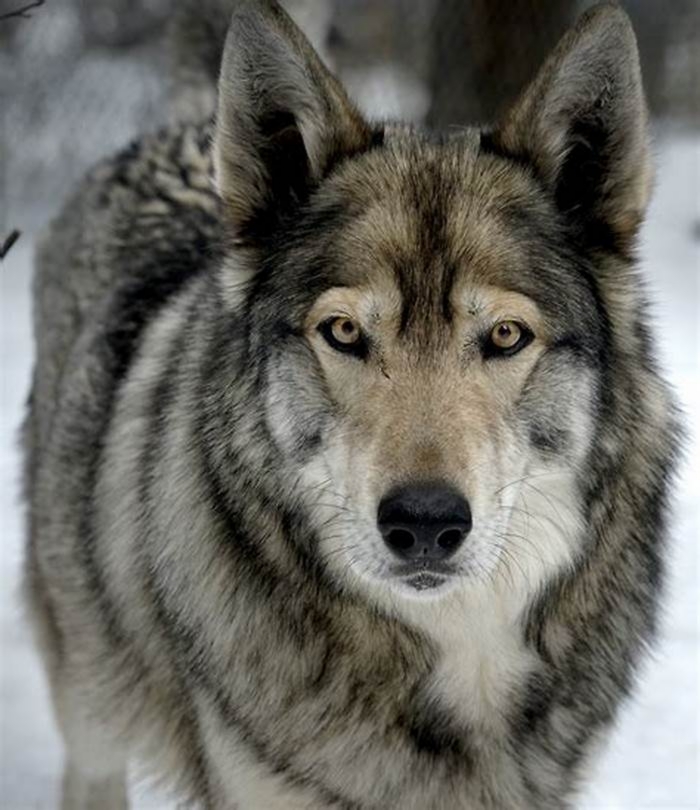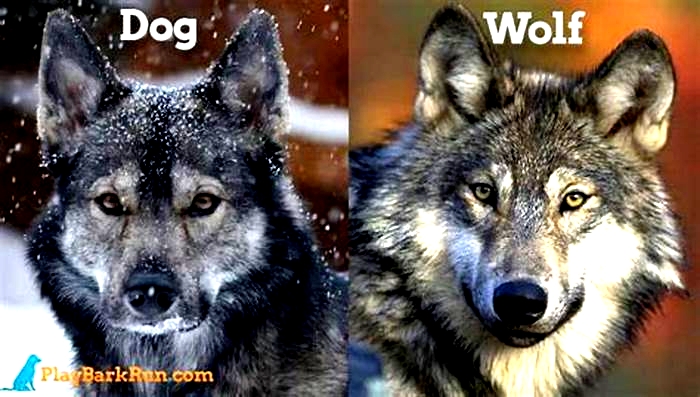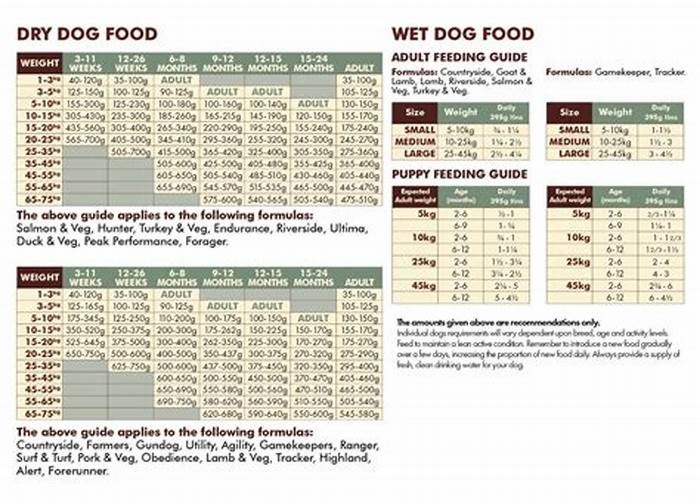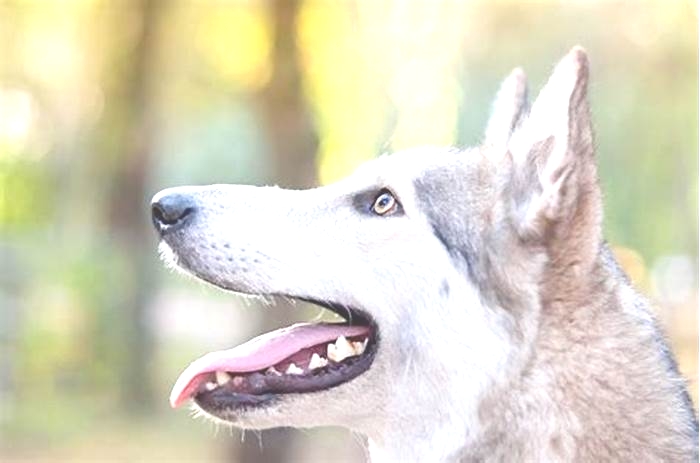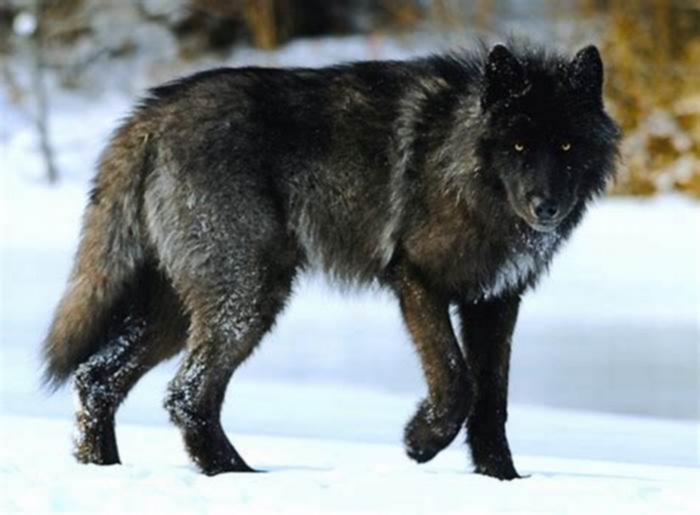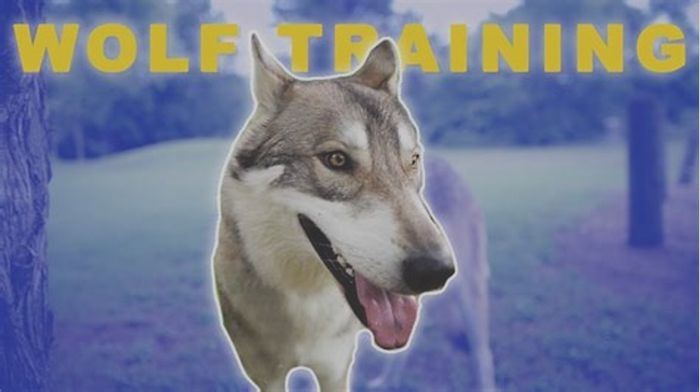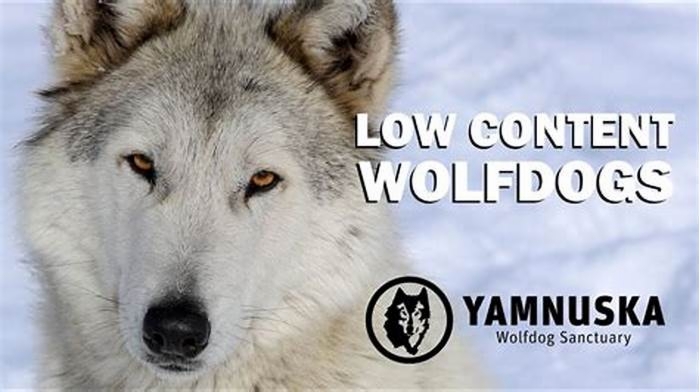What is the temperament of a wolf dog
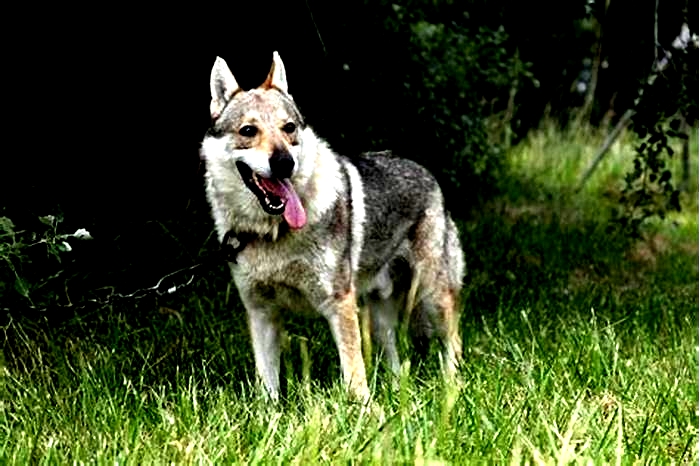
Wolf-Dog Hybrids
Myths Regarding Wolf Hybrids
MYTH:A wolf hybrid will make a better guard dog.
FACT:Due to the shy nature of wolves, hybrids usually make poor protection dogs. Aggressive tendencies, if any, in the hybrid may be fear induced and as such, can be unpredictable and hard to control.
MYTH:A wolf hybrid will live longer than a dog.
FACT:The life span of a wolf in captivity is 12-14 years the same as a large domestic dog.
MYTH:Hybrids are healthier than dogs, and are less prone to disease.
FACT:Wolves and dogs are prone to the same infectious diseases. There may be some question as to the efficacy of standard dog vaccines in wolves and some hybrids.
MYTH:Huskies and malamutes are part wolf.
FACT:Huskies and malamutes are breeds of dogs, like any other.
Wolf Content in the Hybrid
Many breeders who deal in wolf hybrids promote the wolf content of the pups and even set their prices according to the amount of wolf blood in the litter. This is not based on sound biology or genetics.
When one breeds a dog with a wolf, the offspring will inherit a set of genes from each parent, and are indeed 50/50 that is, one-half dog and one-half wolf. However, when these animals are backcrossed with other wolves, dogs, or hybrids there is no way to calculate or manipulate which genes are passed to any individual offspring. Often breeders believe, for example, that a 50 x 50 hybrid backcrossed with a 100% wolf would yield an offspring that is 75% wolf. However, that would only be an AVERAGE amount of wolf in many backcrosses. Any INDIVIDUAL animal might inherit all the dog genes from the hybrid and be 50 x 50 both physically and behaviorally. Or conversely, any individual could be predominantly wolf, or any variation or combination in between. It is like throwing 50 blue marbles representing a male parent and 50 yellow marbles representing the female parent into a bag and randomly selecting the 50 marbles that will represent the DNA of one offspring. You dont know what you will get. The ideal result would be an individual that looks like a wolf, but behaves like a dog. Unfortunately, often one ends up with an animal that looks like a dog and has the perceived obstinate nature of a wolf.
There are genetic tests available. Those tests look at 3-4 genetic markers, depending on whether it is a male or female. According to the testing lab, what the test can tell the owner is whether there has been wild wolf DNA in that domestic dogs lineage in the past three generations. Others dont see the test as reliable yet, and what the analysis shows is that the DNA sample simply does not match any known domestic dog DNA on file. This all contributes to the uncertainty of how to determine what is a hybrid. People working with hybrids often look at several factors: physical appearance, and behavioral history to make an educated decision about whether an animal is a hybrid. The result is to label hybrid as low, medium, or high content wolf depending on the degree to which the animal looks and behaves like a wolf.
Wolf Dog temperament and behavior
Are you thinking of adding a wolf dog to your family? Owning one of these unique and majestic creatures can be an incredibly rewarding experience, but it is important to understand their temperament and behavior to ensure they are given the best care possible. Wolf dogs require a lot more attention than most other breeds, as their inquisitive nature and free-spiritedness will keep you on your toes!
What is the personality of a wolf-dog?
Wolf dogs, also known as wolf hybrids, are a combination of a wolf and a domestic dog. They are largely unpredictable when it comes to their personality traits, as it can be a mix of both the wildness of the wolf and the domesticated nature of a dog.
These animals often appear to understand the human language better than other breeds and tend to respond more reliably to verbal commands due to their high intelligence. They also make excellent watchdogs due to their territorial instincts and strong protective instinct over family members.
Finally, wolfdogs have an abundance of energy that need serious physical and mental stimulation for them to remain calm. All in all, they are true pack animals with an eager spirit that takes patience and understanding from their patient owners.
Are wolf dogs good family dogs?
Owning a wolf dog can be a great experience for those looking for an unusual pet but its not for everyone. Wolf dogs typically require more exercise and training than other breeds and can present unique challenges in terms of temperament.
If well-socialized, they may make loyal, devoted family pets; however, if you do have children in the house it is important to remember that these animals retain their instincts as predators. With careful training and supervision, though, a wolf-dog hybrid can be an amazing companion animal offering years of faithful love and entertainment.
How is Wolf Dog behavior different from dog behavior?
Wolf Dogs, also known as wolf hybrids, have a unique temperament compared to regular domesticated dogs. These canines exhibit a much higher level of intelligence that requires more extensive training and socialization. They are often quite loyal to their owners and require plenty of positive reinforcement when being trained.
Not only do they require mental stimulation, but they crave lots of physical activity as well due to their naturally high prey drive. While Wolf Dogs may show similar behaviors as other dogs, prospective owners need to take into account the more primitive instincts that make them different from a typical pooch.
Are wolf dogs friendly?
Wolf dogs can be surprisingly friendly, despite their intimidating appearance. Rather than being indiscriminately aggressive the way wolves tend to be, wolf dogs that are raised interactively and receive proper socialization can make a great addition to the family as they become loyal and loving companions.
Theyre even typically quite eager to please their owners which can make training them a breeze. That said, wolf dogs are still much wilder and less predictable than domestic dogs so proper training and dedicated care are essential for owners who want to welcome such an animal into their home.
Are wolf dogs aggressive?
Wolf dogs have a reputation for being aggressive, but this isnt necessarily the case.If a wolf dog is well-socialized early on and has proper training, then it can be just as friendly as any other breed of domestic dog. Wolf dogs need to be taken care of like any other breed, with routine vet check-ups, exercise, and lots of love!
But if theyre not handled properly, they may be more likely to exhibit aggression. So if you plan on getting a wolf dog, make sure you provide them with everything they need the right diet, plenty of playtimes, and lots of socialization. With the right amount of attention, you can help your wolf dog stay content and friendly!
Are wolf dogs destructive?
Having a wolf dog can be a rewarding experience yet intimidating. Wolf dogs are often misunderstood when it comes to their behavior. While they can possess physical traits that make them look like wolves, they get their behavioral traits from domestic dogs, which tend to require training and socialization just as any other canine would.
This said wolf hybrids arent the most popular of dogs due to the potential for destructive or aggressive behavior if not properly socialized and trained. However, with proper care and guidance, wolf dogs can be loyal companions that bring an exotic flair to your life.
Conclusion
All in all, wolf dogs are intelligent and loyal animals. Their social interaction and behavior can depend on their upbringing and training, as they can both become stubborn but also very playful. With the right understanding and care, you can have a wonderful companion animal to share your home with. As with any pet, it is important to do your research before owning a wolf dog. This means knowing your countrys laws regarding owning them as a pet, making sure you have the experience necessary for providing daily care for them, and being prepared for any particular need that may arise along the way. As long as you are patient, gentle, and respectful with them, these wonderful animals make fantastic companions that will offer joy and fulfillment to your life!
Unleashing the Unique: Understanding Your Wolf Dogs Temperament
Introduction to Wolf Dog Temperament
Wolf dogs, as their name suggests, are a unique blend of domestic dog and wild wolf. This combination results in a fascinating creature, possessing traits from both its canine and lupine ancestors. Understanding the temperament of these extraordinary animals is crucial for anyone considering bringing one into their home. Lets delve into the unique nature, personality, and behavior of wolf dogs.
- Understanding the unique nature of wolf dogs
- Insights on wolf dog personality
- Importance of understanding wolf dog behavior
Wolf dogs are not your average pet. They carry the genes of the wild wolf, which can make them more independent, territorial, and unpredictable than a typical domestic dog. They are highly intelligent and require a lot of mental stimulation. They also have a strong pack instinct, which means they need a lot of social interaction. However, this doesnt mean they are unmanageable. With the right approach and understanding, you can have a rewarding relationship with a wolf dog.
Wolf dogs have a wide range of personalities, just like humans. Some are outgoing and friendly, while others are more reserved and cautious. They can be playful and energetic, or calm and laid-back. They are often very curious and love to explore their surroundings. However, they also have a strong instinct to protect their territory and their pack, which can make them wary of strangers. Its important to remember that every wolf dog is an individual, and their personality can be influenced by many factors, including their upbringing and environment.
Understanding the behavior of wolf dogs is crucial for their well-being. They have unique needs and behaviors that can be challenging for those who are not prepared. For example, they need a lot of exercise and mental stimulation to prevent boredom and destructive behavior. They also need clear boundaries and consistent training to feel secure. By understanding their behavior, you can provide them with the care and environment they need to thrive.
In conclusion, wolf dogs are unique and fascinating creatures with their own set of needs and behaviors. By understanding their temperament, you can ensure that you are providing them with the best possible care and environment. So, lets dive deeper into the world of wolf dogs and learn more about their individuality, behavior, and personality.
Understanding Wolf Dog Individuality
Every wolf dog is unique, with their own set of traits and characteristics that set them apart. Understanding this individuality is key to forming a strong bond with your wolf dog. Lets delve into how we can recognize this individuality.
Recognizing Individuality in Wolf Dogs
Recognizing individuality in wolf dogs involves two key steps: identifying unique wolf dog traits and observing examples of individuality in wolf dogs.
- Identifying Unique Wolf Dog Traits
- Examples of Individuality in Wolf Dogs
Wolf dogs, like humans, have their own unique traits. Some may be more playful, while others may be more reserved. Some may have a strong prey drive, while others may be more interested in exploring their surroundings. Paying attention to these traits can help you understand your wolf dogs individuality.
Individuality in wolf dogs can be seen in their behavior and interactions. For instance, one wolf dog might enjoy playing fetch, while another might prefer to spend their time sniffing around the yard. Some wolf dogs might be more sociable and enjoy being around people, while others might prefer the company of other dogs. These are all examples of individuality in wolf dogs.
Recognizing and understanding your wolf dogs individuality is crucial for building a strong and healthy relationship with them. It allows you to cater to their specific needs and preferences, ensuring they live a happy and fulfilling life.
Embracing Wolf Dog Traits
Wolf dogs are a unique blend of domestic dog and wild wolf. This combination results in a fascinating mix of traits that can be both challenging and rewarding to nurture. Lets explore how to embrace and nurture these unique traits.
- How to Embrace and Nurture Unique Traits
- Case Study: Successful Nurturing of Wolf Dog Traits
Understanding your wolf dogs individuality is the first step towards embracing its unique traits. Every wolf dog has its own personality, with some traits more dominant than others. Its essential to observe and understand these traits to provide the right care and training.
For instance, wolf dogs are known for their intelligence and curiosity. Encourage these traits by providing mental stimulation through puzzles and interactive toys. Wolf dogs also have a strong instinct to roam and hunt. Regular exercise and a safe, enclosed outdoor space can help satisfy these instincts.
Remember, nurturing these traits doesnt mean letting your wolf dog do whatever it wants. Its about providing a supportive environment where its natural behaviors can be expressed in a healthy, controlled way.
Lets look at a case study of Max, a wolf dog who was successfully nurtured by his owner, Sarah. Max was a high-energy, intelligent wolf dog with a strong instinct to roam. Sarah embraced these traits by providing Max with plenty of exercise and mental stimulation.
She set up a large, secure outdoor space where Max could explore safely. She also provided interactive toys and puzzles to keep his mind engaged. With patience and consistency, Sarah was able to nurture Maxs unique traits while ensuring he was a well-behaved, happy pet.
| Traits | How Sarah Nurtured Them |
|---|---|
| High Energy | Regular exercise and playtime |
| Intelligence | Interactive toys and puzzles |
| Instinct to Roam | Safe, enclosed outdoor space |
In conclusion, embracing and nurturing your wolf dogs unique traits is all about understanding its individuality and providing a supportive environment. With patience, consistency, and the right approach, you can help your wolf dog express its natural behaviors in a healthy, controlled way.
Wolf Dog Behavior
Wolf dogs are unique creatures that exhibit a blend of traits from both wolves and domestic dogs. Understanding their behavior is crucial for a harmonious coexistence.
Understanding Wolf Dog Behavior
Wolf dogs are not your typical pets. They have a unique set of behaviors that set them apart from other breeds. Lets delve into the key aspects of their behavior and debunk some common misconceptions.
- Key Aspects of Wolf Dog Behavior
- Common Misconceptions about Wolf Dog Behavior
Wolf dogs are highly intelligent and independent. They have a strong pack mentality, which means they value their family or pack above all else. They are also highly territorial and can be wary of strangers. Wolf dogs require plenty of mental and physical stimulation to keep them happy and healthy.
Many people believe that wolf dogs are aggressive and dangerous. However, this is a misconception. Like any other breed, their behavior largely depends on how they are raised and treated. Another common misconception is that wolf dogs are simply wild wolves. In reality, they are a hybrid of a wolf and a domestic dog and thus, they exhibit traits of both.
In conclusion, understanding the behavior of your wolf dog is the first step towards building a strong and loving relationship with them. Remember, every wolf dog is unique and their behavior can vary greatly. So, take the time to understand your wolf dog and provide them with the love and care they deserve.
Managing Wolf Dog Behavior
Wolf dogs are unique creatures that require a special approach when it comes to behavior management. Here, we will explore practical tips for managing wolf dog behavior and delve into a case study that demonstrates effective management techniques.
- Practical tips for managing wolf dog behavior
- Case study: Effective management of wolf dog behavior
Wolf dogs are a blend of domestic dog and wild wolf, which can make their behavior a bit unpredictable. However, with the right approach, you can manage their behavior effectively.
Firstly, exercise is crucial. Wolf dogs are active animals and require plenty of physical activity to keep them healthy and happy. Regular walks, playtime, and mental stimulation can help prevent behavioral issues.
Secondly, training should start at a young age. Use positive reinforcement techniques to encourage good behavior. Remember, patience and consistency are key.
Lastly, socialization is vital. Expose your wolf dog to different environments, people, and animals to help them become well-rounded and adaptable.
Lets look at a case study of a wolf dog named Max. Max was a young wolf dog with a lot of energy and a tendency to be destructive when left alone.
Maxs owners implemented a routine of daily exercise, including long walks and playtime. They also started training sessions using positive reinforcement techniques. Over time, Maxs behavior improved significantly. He became less destructive and more obedient.
This case study demonstrates that with patience, consistency, and the right approach, managing wolf dog behavior is achievable.
In conclusion, managing wolf dog behavior requires understanding, patience, and consistency. With the right approach, your wolf dog can become a well-behaved and loving companion.
Insights on Wolf Dog Personality
Wolf dogs, a unique blend of domestic dog and wild wolf, are known for their distinct personality traits. Understanding these traits can help you better connect with your wolf dog and manage their behavior effectively.
Wolf Dog Personality Traits
Lets delve into the unique personality traits of wolf dogs and how these traits influence their behavior.
- Exploring the personality traits of wolf dogs
- How personality affects wolf dog behavior
Wolf dogs possess a combination of traits from both wolves and dogs, making them unique and fascinating pets. They are often independent, intelligent, and have a strong instinctual drive. They can also be wary of strangers, which makes them excellent watchdogs. However, they also have a playful side and can be very affectionate with their human families.
The personality of a wolf dog greatly influences their behavior. Their independent nature means they may not always follow commands like a typical domestic dog. Their intelligence requires mental stimulation to prevent boredom and destructive behavior. Their instinctual drive may lead them to chase smaller animals. Understanding these traits can help you provide the right environment and training for your wolf dog.
In conclusion, wolf dogs are complex creatures with a unique set of personality traits. Understanding these traits is key to building a strong and loving relationship with your wolf dog.
Wolf Dog Character Insights
Wolf dogs are unique creatures, blending the wild instincts of wolves with the domesticated nature of dogs. Understanding their character can help you build a strong and healthy relationship with your pet. Lets delve into some key insights about the character of wolf dogs.
- Understanding the character of your wolf dog
Wolf dogs are not like your typical domestic dogs. They possess a blend of traits from both wolves and dogs, making them unique. They are intelligent, independent, and have a strong instinctual drive. They are often more active and need more mental stimulation than most domestic dogs. Understanding these traits can help you provide the right environment and care for your wolf dog.
For example, due to their high intelligence and independence, wolf dogs may require more challenging toys and puzzles to keep them mentally stimulated. They may also require more physical exercise to satisfy their active nature. Understanding these aspects of their character can help you meet their needs and form a stronger bond with your pet.
- Key takeaways on wolf dog character insights
| Character Trait | Implication |
|---|---|
| High Intelligence | Requires more mental stimulation, such as challenging toys and puzzles. |
| Independence | May be more self-reliant and less likely to seek constant human companionship. |
| Active Nature | Requires more physical exercise to stay healthy and happy. |
In conclusion, understanding the character of your wolf dog is crucial to providing the right care and environment for them. Remember, they are not just dogs or wolves, but a unique blend of both. Embrace their unique traits and work with them to build a strong and healthy relationship.
Conclusion: Embracing and Understanding Your Wolf Dogs Temperament
As we draw to a close, its crucial to remember that understanding your wolf dogs temperament is not a one-time event but a continuous process. Its about embracing their unique individuality, behavior, and personality, and using this knowledge to build a strong and loving bond with your pet.
- Recap of understanding wolf dog individuality, behavior, and personality
Every wolf dog is unique, with their own set of traits and quirks. Their individuality is what makes them special. Weve learned that their behavior is a mix of both wolf and dog characteristics, which can be challenging but also rewarding to manage. Their personality, on the other hand, is influenced by their upbringing, environment, and genetics. Understanding these aspects is key to providing them with a fulfilling and happy life.
- Final thoughts on embracing wolf dog traits
Embracing your wolf dogs traits means accepting them for who they are, with all their strengths and weaknesses. Its about appreciating their wild instincts while also nurturing their domestic side. Its about being patient, understanding, and loving, even when they display behaviors that may be difficult to manage. Remember, your wolf dog is not just a pet, but a member of your family.
In conclusion, understanding and embracing your wolf dogs temperament is a journey filled with challenges and rewards. Its a journey that requires patience, love, and understanding. But in the end, the bond you will form with your wolf dog will be worth every effort.

